A full house packed into Thalia Hall on Monday, Mar. 4 to see California-born singer-songwriter Ryan Beatty, who offered up a sweet concoction of musical catharsis for his captive — and highly entranced — audience.
Beatty’s stop at Thalia Hall was part of his “Calico Tour” in support of his third LP of the same name released last spring. Beatty played a handful of live shows across the U.S. last summer, but waited until this spring to head out on a proper tour.
In the minutes leading up to 8 p.m., a group of three girls stood near the front barricade debating online therapy. A few feet away, fans front and center readied their copies of “Calico,” in the hopes of getting Beatty’s signature. As the lights dimmed, the crowd seemed unsure of what the proper applause protocol was given the cool and acoustic nature of Beatty’s music. After some scattered applause, the rest of the crowd caught up and cheered out.
Beatty sauntered onto stage dressed in dark-wash jeans, a white t-shirt and a worn pair of boots. Taking place on a stool at the front of the stage, he lifted a pair of headphones over his ears and opened with “Ribbons,” joined by his six member band.
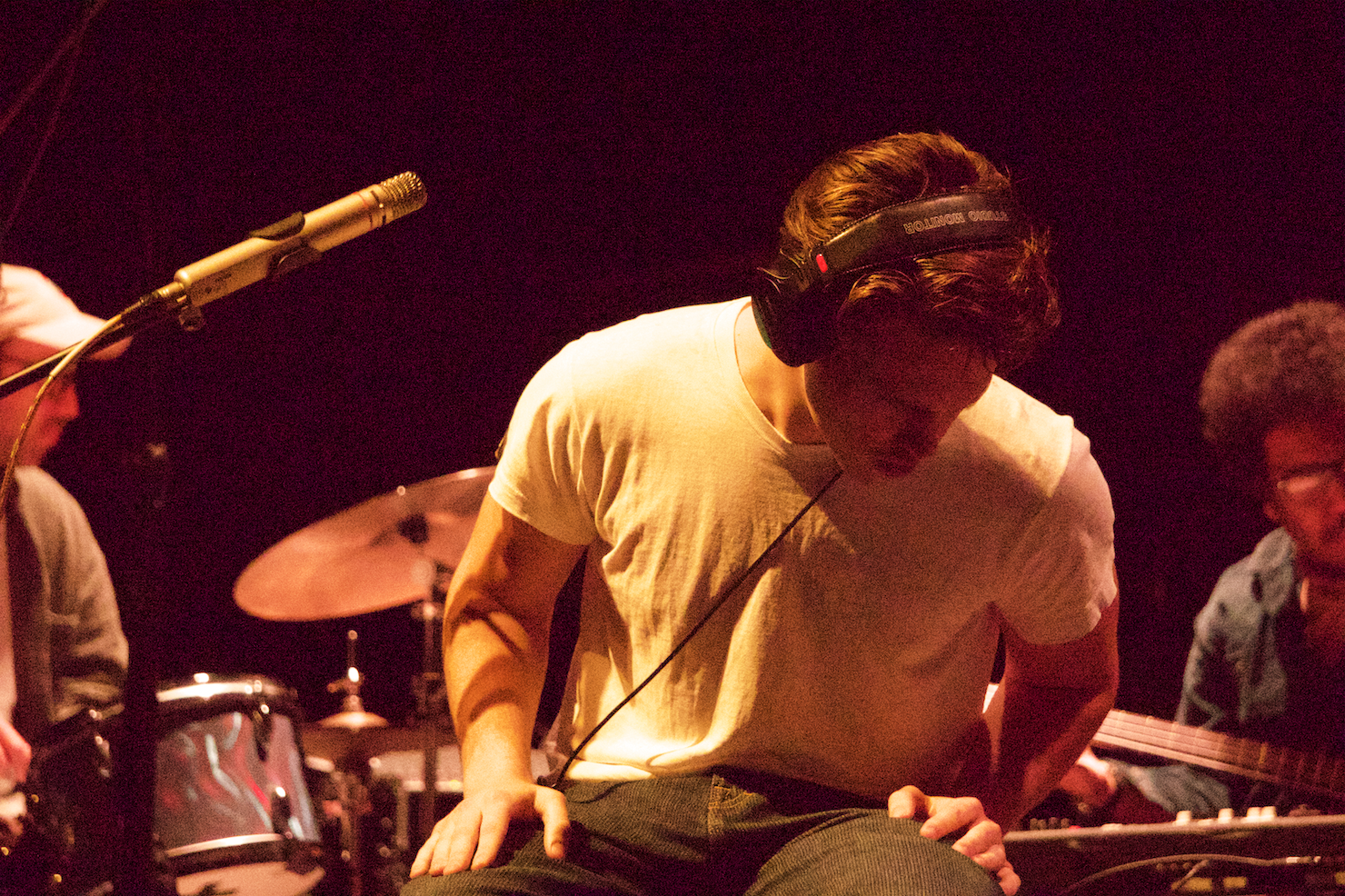
The audience’s collective enamorment and captive nature was immediately apparent. No one dared to shout over Beatty’s smooth voice — music this intricately crafted deserves to be heard without interference. Throughout the night, fans could be found pulling out their phones to record their favorite songs, but stashed them back in their pockets just as quickly to make sure they remained as actively engaged with Beatty as possible. For a mostly Gen Z crowd, this was immensely impressive. No attention-seeking Swiftie-types screeched out the lyrics to prove that they were the biggest fan in attendance. Rather, the crowd rarely sang along, often only doing so if Beatty encouraged them to. The sing-alongs were conducted in a quiet hum and near-whisper, which is admirable to see such respect for an artist’s performance in the days of a sheer lack of concert etiquette.
Beatty moved quickly, but not hastily, through the entirety of “Calico,” and took pitstops for cuts from his other LPs. When revisiting older material from his catalog, Beatty and his band reconstructed the songs to align with the sweeping, poignant sounds of “Calico.” While some longtime fans might have wished for “Haircut” with its original bubbling synths, one could hardly complain about the stripped-down rendition performed with a backdrop of piano and guitars. “Casino,” from his 2020 album “Dreaming of David,” made for a particularly entrancing performance, as his band layered percussion and piano to give the song some extra body. The song was performed with a kind of poignance that Beatty seemed to allow himself to access momentarily without fully aligning his temperament with it.
Throughout the night Beatty’s voice never faltered. If anything, his voice was so damn precise and crisp it pushed his catalog to greater heights than the studio recordings — which is no easy task when the final studio mixes are already exceedingly dreamy. His voice transitioned smoothly between delicate and quiet to supple and striking, sliding in and out of each technique without appearing strained.
This fact was widely recognized by the audience, as one member shouted out “sing yo ass off!” at one point in the night.
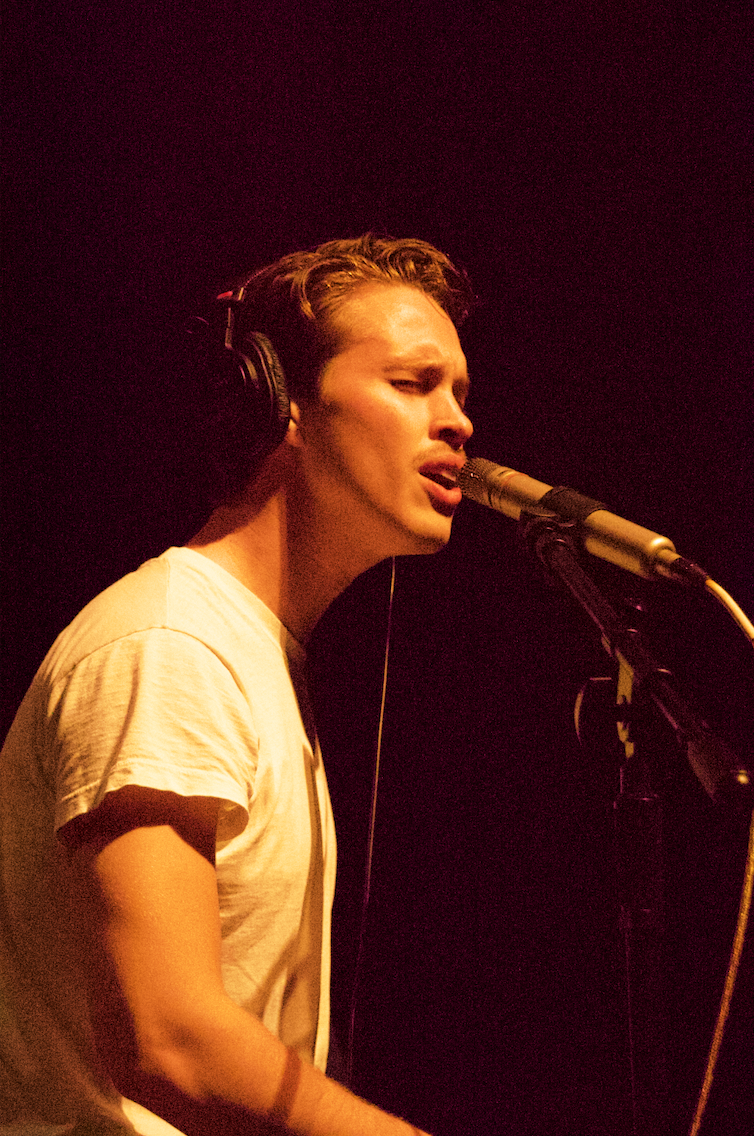
The entirety of the show was played fully live by Beatty’s band, who all seemed just as grateful to be playing for the crowd as Beatty himself. Witnessing the talent of the band, who played everything from piano to steel guitar, bass to keyboard, was just as much of a treat.
As Beatty would sing, he’d often shake his head around and close his eyes, appearing to be just as moved by the music as the crowd was. While couples in the crowd would slowly sway to the music, Beatty would partake in his own movements that seemed to be just as instinctive. An air of genuine gratitude, not only for the crowd but for the music itself, was clear in the singer’s disposition. As the band would play out a song, he’d hang his head and sway. Other times, like for “Bruises Off The Peach,” he’d jump up and deliver the song to the crowd with a palpable emotional fervor. Sure, Beatty was “performing” for his crowd, but not in the way that traditional pop stars do. Rather than feeling like they were witnessing a “show,” it was clear that the audience viewed the chance to see Beatty in his element as an esteemed privilege, not a right.
Beatty’s nature maintained its approachability and authenticity for the duration of the evening. In some ways, his manner with the crowd aligned with the tenets of punk music: the performer is no greater than their audience.
“This is a dream come true, playing these songs,” he said. “Thank you for being here for real, for real. I’ll always come back.”
Beatty left the stage after a resounding performance of “White Teeth” only to come back a minute later for an encore. The first of the two encore songs was a cover of Dolly Parton’s “Do I Ever Cross Your Mind?,” which oddly enough fit right into the sounds of the evening. For all an unfamiliar concertgoer could tell, it was a bonus cut from “Calico.” “Little Faith” followed, capping the night off with a performance saturated in an unexplainable nostalgic factor, both somewhat bitter yet sweet.
Beatty’s time on stage offered both serenity and catharsis in a manner that felt deeply authentic, like the friend you confide in when the going gets tough. And really, isn’t that what all the best kinds of music and performances do?
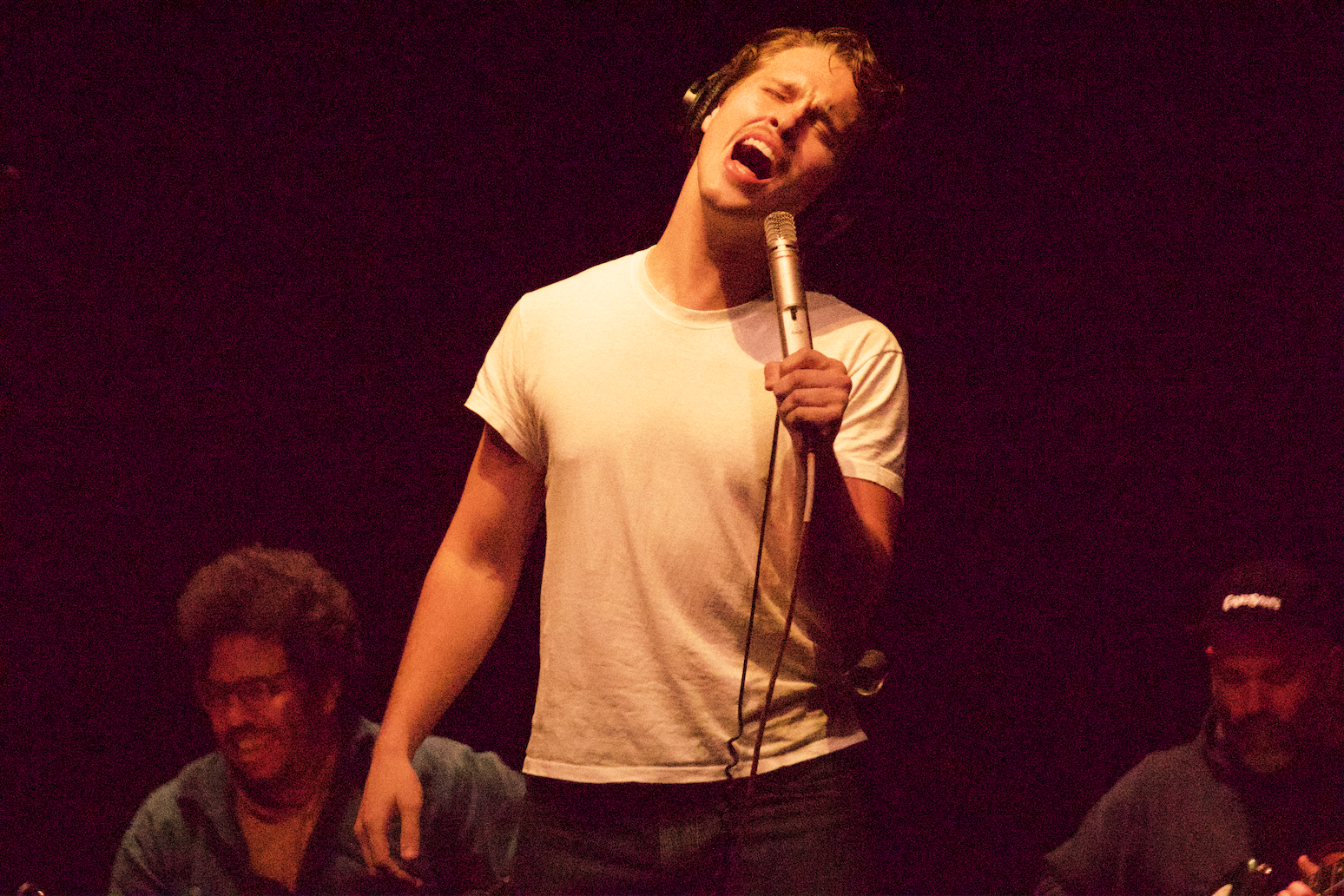

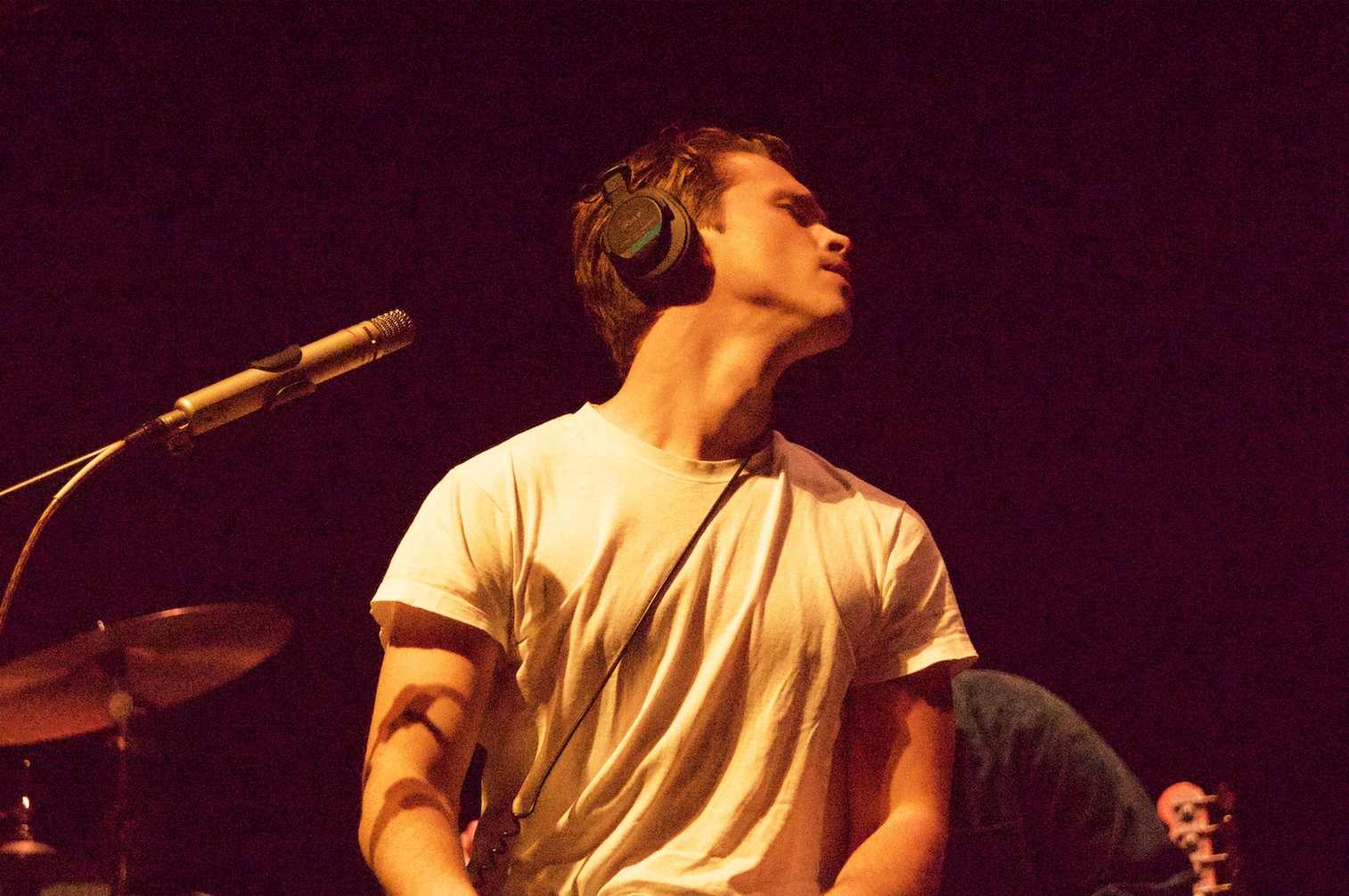
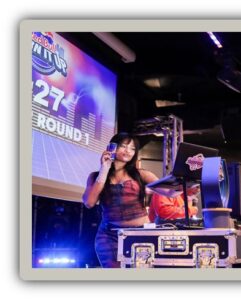

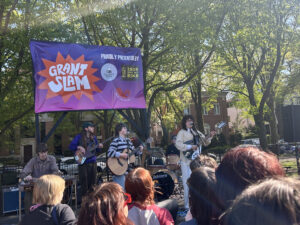

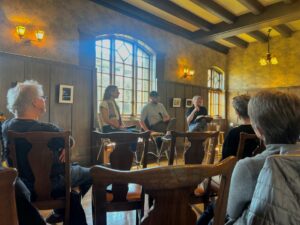
Be First to Comment